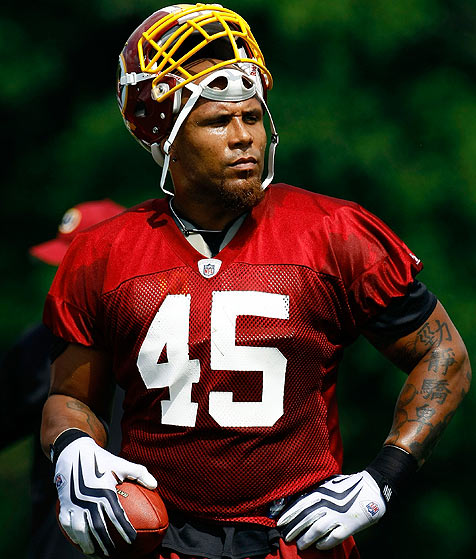Sitting out games is next logical step for disgruntled NFL players
I listened and told him my opinion, which was that he had to take the pay cut, even though it was unfair of the franchise to put his feet to the fire like that, especially considering his on-field production certainly didn't merit a steep pay decrease. Looking at his performance over the past couple of years, I can objectively say that he had more than held up his end of the bargain. Still, the team was using its leverage to save some money.
The problem, as I explained to him, is that getting cut on the final day is the absolute worst time to enter the free-agent market. It is a supply and demand thing, and an influx of players, over 600 in all, were about to be available. I have no doubt he would have been picked up by another team immediately. The problem is it likely would have been for the league minimum, and that was substantially less than the pay-cut offer.
With more time, he and his agent probably could have canvassed other teams to see who would be interested in him and at what price. This is against the rules, of course, but it happens all the time, and with good reason. How else would a player know what decision to make in that instance? My guess is new 49ers right tackle Tony Pashos had a pretty good idea what his market value was when he declined to decrease his salary in Jacksonville. The problem for Pashos, however, is that he still lost out financially. He was scheduled to make $4.3 million with the Jags and refused to trim it down to $3 million. He will reportedly make a little less than $2 million in San Francisco.
Most fans dislike when players sit out OTAs or training camp while angling for a new contract. The consensus seems to be that players should honor their signed deals. That's a fine thought, of course, but in this case, which party isn't honoring the long-term contract? As it stands, I think these conversations happen more often than we realize, they just aren't publicized.
Anyway, the Saturday call got me thinking about the evolution of the dynamics between teams and players over the years. Sitting out OTAs, mini-camps and training camp doesn't quite have the same effect it used to have. Other than the recent Roddy White example in Atlanta, most players have been unable to get what they wanted by sitting out practices.
That's why I think we are getting closer and closer to a player threatening to sit out a regular season game. Maybe it comes via a "tweaked hammy" on Friday or, better yet, a sudden case of the "flu" on a Sunday morning. But I think the time will come when a player takes the next step in the game of leverage that is constantly being waged between front offices and players. If a player wants his outdated contract redone or, better yet, wants the team to cut him and put him on the lucrative free-agent market, then withholding services for a regular season or playoff game is the biggest card a player can play.
Yeah, I know there are significant fines or suspensions that would come into play. But ultimately, these teams do not want to play regular season games without their best players. They really don't. If they did, the Broncos wouldn't have thrown one of the weakest suspensions of all time at Brandon Marshall. Sit out the rest of the preseason and then come back for the first regular season game? What? How many players would run to sign up for that suspension. Probably most of them. Heck, Lawyer Milloy and Vonnie Holiday basically did just that when they signed with the Seahawks and Broncos, respectively, over the weekend.
So maybe it is Marshall who tries it in Denver this season. Or Anquan Boldin in Arizona. Or maybe it is a lesser known guy who's a vital contributor to his team's success, like stud Redskins fullback and special teamer Mike Sellers. The 'Skins management may feel like it has the upper hand as it continually dismisses Sellers' private and public pleas that his contract be adjusted to reflect his recent Pro Bowl status, and perhaps rightfully so. But do the 'Skins really want to play a meaningful football game without their hammerhead fullback paving the way for Clinton Portis?Especially if the absence is communicated later in the week, after they have put in the game plan for the week? I highly doubt it.
In fact, maybe Sellers and others in a similar situation should show up at the stadium about three hours before the game and tell the team it needs to re-do the contract by kickoff. After all, that's roughly the same time frame the player I spoke to was given to make his potentially life-altering decision.





